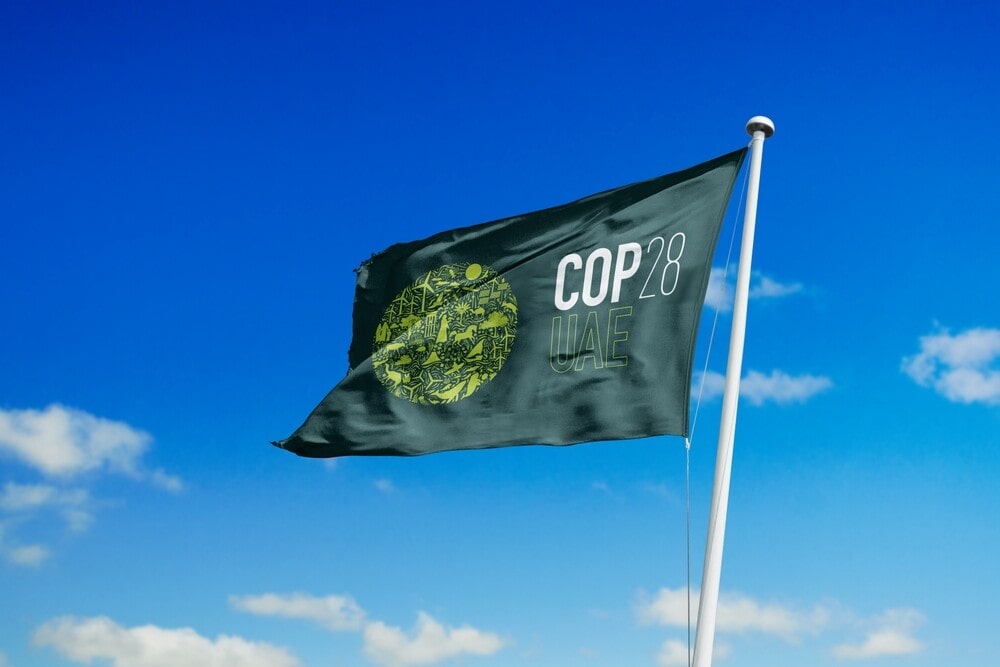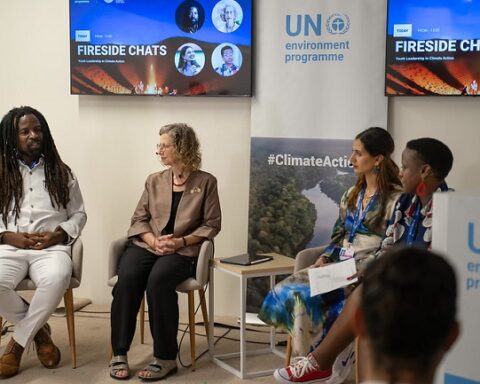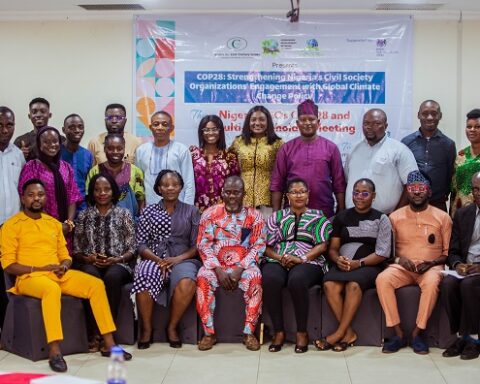The countdown to COP28 has begun and battle lines have been drawn. In just two months in Dubai, two alternate realities are set to collide. On the one side, a concerted drive to set an end date for fossil fuels and a 2030 target for clean energy production.
On the other, a renewed push from oil, gas & coal countries desperate to protect the status quo.
The man in charge of overseeing the battle, COP28 President and boss of the Abu Dhabi National Oil Company Sultan Al Jaber, has come out swinging, accusing those calling for a swift end to fossil fuels of unwarranted cynicism and undermining his position.
“The world only, for whatever reason, views us as an oil-and-gas nation,” he said. “We have moved beyond oil and gas 20 years ago. We embraced the energy transition 20 years ago.”
Given the fact that renewable energy in the host nation UAE accounts for less than 1% of the energy supply, such a claim lacks any credibility.
Many observers are becoming increasingly concerned, including US climate envoy John Kerry. Fossil fuels, which are responsible for three-quarters of all greenhouse gas emissions, will be the key battleground. And, as always, language will be key.
The words that proved so contentious at COP26 in Glasgow – fossil fuel phase-down vs phase-out – will be keenly fought over.
The closest we have to a public plan for COP28 is this letter sent to all countries by the UAE in July, where a fossil fuel phase-down together with renewable expansion and energy efficiency targets, are laid out.
In March, the EU backed a global fossil phase-out target. In May, the G7 agreed to speed up the fossil phase down. In September, the G20 agreed on tripling clean energy, while a High Ambition Coalition statement called for a “global phase out”.
The recent UN Climate Action Summit in New York provided little clarity, mainly because most of the world’s biggest emitters were barred from attending. What was abundantly clear, however, is that many country delegations at COP will be targeting meaningful action on fossil fuels with renewed vigour and determination.
Plans trashed
In the vacuum of leadership, some countries are starting to stray from the science. Brazil, Norway, and the UK are among oil and gas producers making the case that fossil fuels are not so bad after all, with UK Energy Security Minister Claire Coutinho bizarrely claiming the industry will “underpin the transition to cleaner energy”.
Indeed UK Prime Minister Rishi Sunak seemed determined to trash his government’s carbon-cutting plans – praising his government’s decision to licence the new Rosebank oilfield west of the Shetland Islands on the basis of energy security, even when Arne Gurtner from majority owner Equinor could not say whether the oil produced from the field would be consumed in the UK.
This was a week after the PM announced the UK would be pushing back its ban on the sale of new petrol and diesel cars from 2020 to 2035. Not only did he bewilder key carmakers, but he also undermined the UK’s reputation as a climate leader, leaving diplomats and global leaders bemused.
Desperate acts
This is all grist to the mill for the oil industry, which will do everything in its power to ensure the world remains addicted to its product, despite the overwhelming evidence to the contrary (a UN ‘technical synthesis’ report published last month reiterated yet again that to avoid +1.5C and hit net zero targets, fossil fuels need to disappear, and fast).
Indeed the International Energy Agency’s (IEA) slew of 2023 reports warning of declining oil demand has enraged Gulf ministers. They’re having none of it. This week OPEC+ Secretary General Haitham Al Ghais confidently proclaimed that oil demand would rise by more than two million barrels a day (roughly 2%) this year and next, and increase by 25% by 2045.
All this while explaining why OPEC+ needs to cut production to maintain prices and bemoaning a lack of investment in the oil sector.
As part of the industry’s plan of attack, expect to hear the word ‘unabated’ – another key linguistic contortion favoured by fossil fuel proponents – a lot during COP. If countries do agree on a fossil fuel phase-out (not down) target, it’s likely to refer to emissions from unabated oil, gas, and coal, i.e. those where no attempt is made to capture CO2.
That means all emissions will need to be trapped by carbon capture and storage (CCS) or accounted for via direct air capture (DAC). While there’s nothing wrong with this in theory, in practice neither offer a viable solution to reducing emissions or atmospheric CO2 levels in the time required.
In the case of CCS, only about 10% of planned projects have ever been completed, many of which are designed to increase the flow from oil wells; even by optimistic forecasts capture capacity will be an order of magnitude short of what is needed; and capture rates are low and costs increase significantly the more carbon is captured.
In the case of DAC, the costs involved mean the industry won’t be able to scale up quickly enough to make a meaningful difference.
The fossil fuel industry will refuse to acknowledge as much at COP and champion both technologies with the specific aim of concealing the unpalatable truth – that rapidly replacing fossil fuels with renewable energy is the only sensible and credible way to decarbonize the energy system, both from a climate and economic perspective.
culled from: www.unclimatesummit.org








